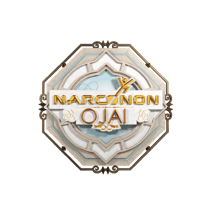Ensuring a Lifetime of Freedom
—What to Do After Drug Rehab
Recovery can be challenging. Walking away from a life fueled by alcohol and drugs and figuring out how to make one's way in the world sober is equal parts rewarding and difficult. While recovery is different for everyone, there are some common tips that while they may seem simple, greatly increase the quality of your recovery.
Included below are ten tools and daily strategies for not only staying sober, but for getting the most out of your recovery as well.
Eat Well!
Eat well, but don’t overeat. A healthy diet is one of the first things that goes out the door when one is misusing drugs and alcohol. And yet, sticking to nutritious meals each day is crucial to health and wellbeing in general. For those in recovery, a healthy diet is essential in rebuilding the body and healing the damage caused by drug use or drinking.

Get Sufficient Sleep at Night
Sleep is often another one of the first things to fall by the wayside when using drugs and alcohol, hence the need to sleep well once in recovery. The human body repairs, recharges, and rebuilds during rest, part of why recovering addicts need to take extra care to get sufficient rest each night. According to the National Sleep Foundation, adults should get about seven to nine hours of sleep per night. Those in recovery should shoot for nine hours of sleep a night if they can.

Get Plenty of Exercise
Not only does exercise improve one’s health in general, but you may also find that exercise is an excellent hobby to dive into, post-rehab. Exercise leads to a healthy endorphin release, “a natural high” of sorts. According to the Centers for Disease Control and Prevention, adults should exercise on a fairly regular basis. And for those in recovery, exercise can improve mood, repair critical bodily functions, rebuild muscle, burn fat, and improve one’s general outlook.
Educate. Educate. Educate.
The more you learn, the better equipped you’ll be for whatever the future may bring. As a general rule, people can better address the challenges of life if they know more about those challenges. Knowledge equals skill and competence in many ways. For those in recovery, it does not matter what subjects they dive into, but committing yourself to ongoing education has the significant benefit of building strength in recovery. Pick a topic that interests you, and learn about it. Take notes, apply what you learned if you can, and discuss it with others. All of this stimulates brain function and memory, critical aspects to a healthy and stable recovery.
Give Back

For most people who have spent some time using drugs and alcohol, their time spent engaging in those activities was not exactly time spent being model citizens. Drug and alcohol use often bring one to steal, lie, hurt others, commit crimes, disrupt family relationships, cause problems at work, etc. Once in recovery, you may find that giving back to your community, friends, coworkers, family members, and neighbors is quite therapeutic. Volunteering and giving back can be a considerable boon to creating stability in recovery.
Don’t Forget to Rest
Hard work and an active lifestyle are important, but it’s equally important to avoid overwork. When you feel like you need rest, take some rest. Listen to your body and mind on this one, and don’t overdo it.
Remember Why You Got Sober
Substance abuse hurts families, leads to legal consequences, harms physical health, and sometimes even ends in death. One way to build strength in sobriety is to remember all of the reasons why you got sober. Everyone has their motivations, and they’re all significant.

Spend Time with Inspirational, Supportive People
Spending time with family members, loved ones, and supportive people has become much more difficult because of the pandemic. To stay safe and prevent the spread of infection, social distancing guidelines should be followed. That makes interacting with a support group challenging. If you can organize outdoor sessions with loved ones (staying six feet apart, and using masks), social interaction with a family member, a fellow recovering addict, counselor, or another support individual can mean a world of difference in staying drug-free.
Consider What Life Would Look Like in a Return to Drug Use
If you are even considering the prospect of returning to drug use, ask yourself the following questions. What did drug use cost you financially, emotionally, and socially? What did you gain while using drugs? You can even write a list for each question. Compare the answers, and remind yourself just how damaging drug use was, and how little you got out of it.
Get Help from Virtual Tools
In light of the COVID-19 pandemic, it is critical that recovering addicts protect their health, that they stay socially distant, and that they follow other health and safety protocols to prevent contracting or spreading COVID-19.
But sometimes, recovering addicts do need to seek help and support from like-minded groups and helpful organizations. Thankfully, many of the support networks for recovering addicts have taken their meetings, chats, counseling sessions, and support environments online.
Should a Relapse Occur…
A relapse can feel like the end of the world, but it does not mean that you lost all the progress you made in your recovery. If you do relapse, you need to return to treatment and address the issues and struggles that brought on the relapse. Narconon is here to help, please contact us today if you or someone you know is in need of addiction treatment.
Sources:
- https://www.sleepfoundation.org/articles/how-much-sleep-do-we-really-need
- https://www.cdc.gov/physicalactivity/basics/adults/index.htm


